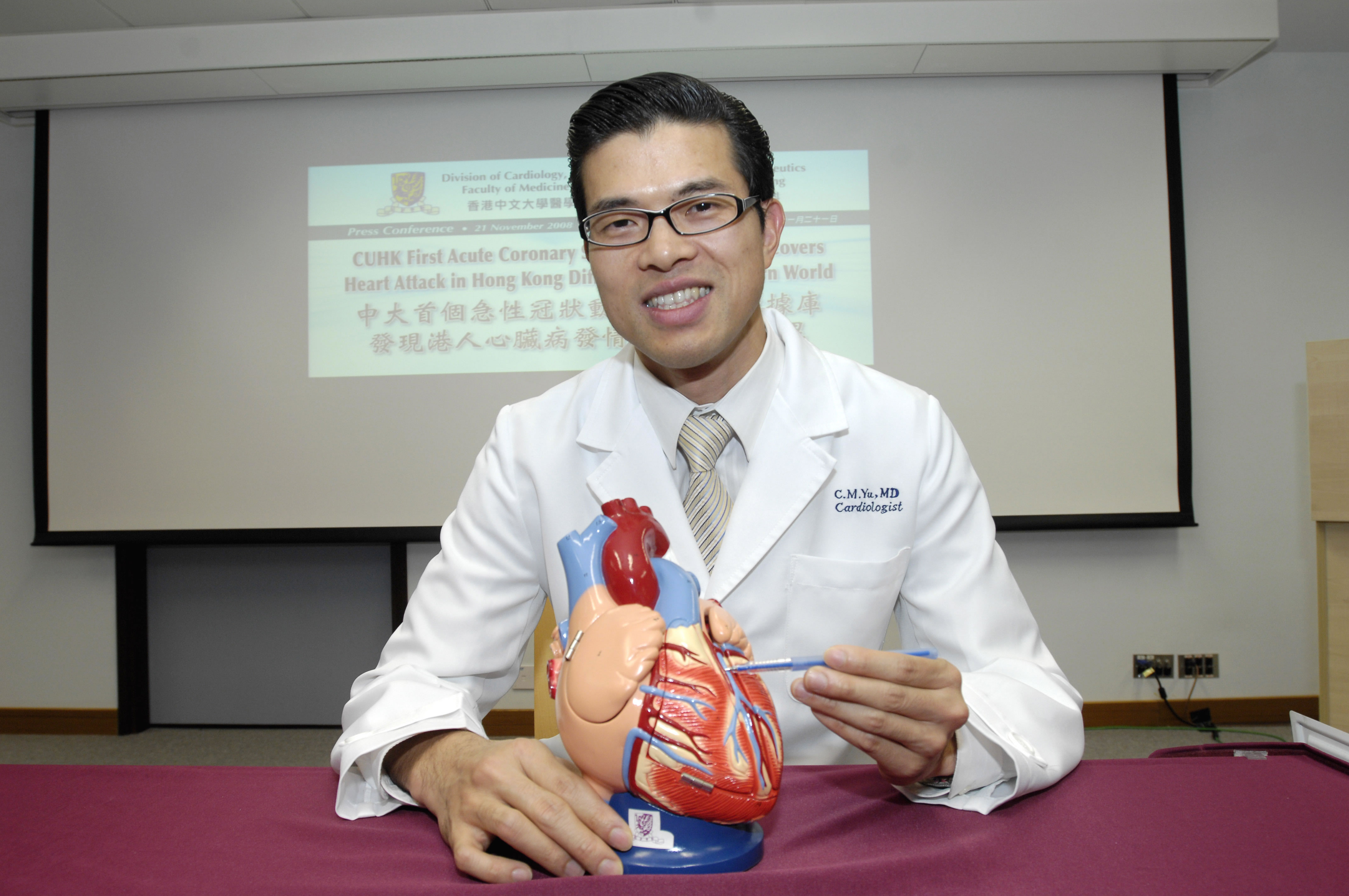CUHK
News Centre
First Local Coronary Registry Set up by CUHK ShowsHeart Attacks Different from the West
Coronary heart disease is becoming a global pandemic. It is caused by the narrowing of arteries supplying the heart. When these arteries are occluded, it will result in acute myocardial infarction (commonly known as heart attack) or unstable angina, a condition collectively called Acute Coronary Syndrome (ACS). In the United States, 1.4 million people are diagnosed with ACS annually. ACS is also one of the leading causes of death in the European Union. In Hong Kong, heart diseases caused about 64,600 hospitalization and 6,372 deaths in 2007.
In order to develop a database for heart attack of the Hong Kong population, the Division of Cardiology of the Department of Medicine and Therapeutics at The Chinese University of Hong Kong (CUHK) initiated the first comprehensive ACS registry of Hong Kong. The database recorded 625 patients with ACS who were admitted to the Prince of Wales Hospital between February 2006 and March 2008. Among them, 388 were male and 237 female, with an average age of 69. Data shows that a number of risk factors have contributed to the development of ACS in these patients. 61% of them were diagnosed with hypertension, 35% with diabetes mellitus and 22% with hypercholesterolaemia. Current smokers account for 22% while ex-smokers for another 25%.
The findings in the registry provide important information which may serve as a blueprint for studying the disease and planning for treatment measures. Contrary to popular belief, ACS is not an exclusive disease in the male population. As shown in the ACS registry, 38% of the patients are female and their first presentation of the condition is 8 years later than their male counterparts.
The ACS registry also observed that the occurrence of ACS in Hong Kong Chinese population is different from that of the West. One of the alarming findings is a significantly higher proportion of patients (70%) who had no history of coronary heart disease prior to their first presentation of ACS to the hospital. This means that there were no previous warning signs before the heart attack, such as angina, which may be fatal if not treated promptly.
It is commonly known that obesity and high cholesterol profile are risk factors for ACS. In the West, obesity is prevalent where the mean Body Mass Index (BMI) is 29.3 for Caucasians and 30.6 for the Blacks (normal value is below 25). However, the patient group of the ACS registry is only mildly overweight (mean BMI at 24.4; normal value is below 23) and tends to have a lower rate of hypercholesterolaemia (22% for Hong Kong versus 44-75% for western populations).
Although Hong Kong Chinese has a lower risk factor profile (i.e. less obese and lower cholesterol values) than the western counterparts, ACS remains one of the top conditions leading to mortality and morbidity locally. Patients who survive from ACS will develop debilitating and fatal complications of heart failure and sudden cardiac death. In conclusion, the ACS registry provides important reference data for the government and physicians in Hong Kong for planning of effective prevention programme and treatment of ACS.



